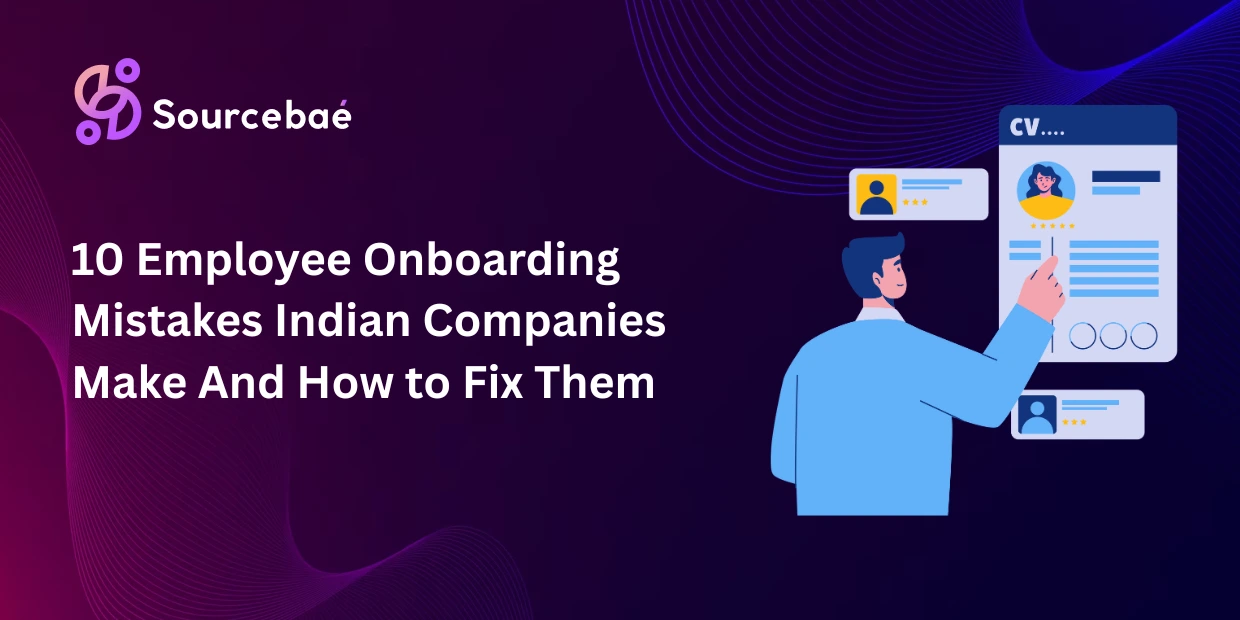When evaluating job candidates, one concern increasingly arising among recruitment teams is the growing trend of candidates relying heavily on “shared scripts” or pre-prepared answers during interviews. With countless preparation resources available online—from Reddit threads to Glassdoor discussions and Discord communities—job seekers now have easy access to detailed interview scripts that can potentially mask their true skills and qualifications.
Detecting candidates who depend too heavily on shared scripts is crucial. Interview authenticity ensures you hire candidates genuinely equipped for the role, preserving your company’s long-term success. But how can interviewers reliably identify and mitigate the problem?
In this comprehensive guide, we’ll walk through what shared scripts entail, discuss their impacts on the hiring process, and offer actionable techniques to detect and manage scripted interview responses effectively.
Understanding Shared Scripts
What exactly are “Shared Scripts”?
A “shared interview script” refers to answers or responses candidates memorize or rehearse extensively from online resources or practice groups. Unlike natural preparation, these scripts often reflect generic responses tailored broadly toward interviewers. Common examples include:
- Behavioral interview sets with pre-planned scenarios and perfect responses.
- Technical cheat sheets circulated among study groups or forums.
- Common interview questions with recommended, perfectly-worded answers.
Platforms Where Candidates Typically Share Scripts
Today’s candidates access scripts predominantly through:
- Reddit Groups: Communities like r/interviews, r/jobs provide shared interview tips and ready-made scripts.
- Glassdoor and Indeed forums: Candidates frequently post interview experiences and answers.
- Discord Communities and Telegram Groups: Real-time chat platforms hosting active candidate interactions, exchanging detailed question-answer sets.
- Personal Blogs & Medium Articles: Experienced interviewees sharing successful answer patterns.
Reasons Candidates Rely on Shared Scripts
Candidates are tempted to use scripts primarily because:
- Anxiety Reduction: Prepared scripts provide comfort and confidence to very anxious candidates.
- Desire for a Competitive Edge: Candidates might perceive these scripts as essential tools to outshine the competition.
- Misguided Career Advice: Misleading advice or myths about the necessity of precise answers in every situation.
Also Read: What Makes A Fair Hiring Process?
Impacts of Shared Scripts on Interviewing Process
Diminished Authenticity
When candidates rely solely on memorized scripts, their answers become robotic, predictable, and lack genuine depth. This denies interviewers the opportunity to truly evaluate the candidate’s critical thinking, adaptability, and genuine competencies.
Complicating Candidate Differentiation
Overly rehearsed responses limit an interviewer’s ability to differentiate authentic, skilled applicants from candidates with superficial, memorized answers. Ultimately, this hinders accurate evaluation of effective talent.
Negative Long-term Hiring Outcomes
Making hiring decisions based on scripted responses can result in misplaced hires who lack actual job performance capability, cultural alignment, or soft skills—leading to costly turnover, productivity drop, and morale issues within teams.
Techniques and Strategies for Detecting Shared Scripts
Interviewers can deploy numerous effective strategies to detect shared scripts:
See how our AI interviewer works in real time!
Automate your hiring process with human-like AI driven interviews for faster, effortless and unbiased results.
Asking Strategic Follow-up Questions
Interviewers can push beyond a candidate’s initial response by:
- Asking in-depth follow-up questions detailing specific aspects of the original answer.
- Requesting personal, real-world examples that demonstrate genuine experience and capability.
Customized, Role-Specific Questions
Generic, predictable questions encourage use of shared scripts. Personalizing interview questions specifically to the job description drastically reduces candidates’ reliance on preformed, cookie-cutter answers.
Observing Behavioral Cues and Speech Patterns
Recognizable signs of scripted responses usually include:
- Monotone speaking style.
- Avoidance of eye-contact.
- Repeating answers word-for-word without natural variation.
- Hesitation and difficulty elaborating when pushed beyond their memorized material.
Changing Interview Formats Regularly
Diversifying interview formats—especially integrating scenario-based, case studies, or practical problem-solving interviews—greatly diminishes the effectiveness of rehearsed scripts.
Leveraging AI Technology & Language Analysis Tools
Modern AI-powered recruiting software can:
- Recognize patterns in language commonly found in repeated scripts.
- Highlight conversational irregularities or unnatural language.
- Identify pre-existing content online that matches candidate responses.
Tools like HireVue, Codility, or AI-powered transcription analysis software may offer insights into memorization or plagiarism during screening.
Also Read: AI Is Revolutionizing the Candidate Screening
Best Practices & Implementation for Recruiters
There’s more than just spotting signed scripts—recruiters must equip their team with the best practice tools to handle this issue professionally.
Regular Training For Interviewers
Conduct consistent training sessions focused specifically on spotting rehearsed scripts, teaching interviewers about critical listening, behavioral analysis, and conversational probing techniques.
Constantly Update Interview Questions
Regularly revise your interview question databases to ensure freshness, unpredictability, and alignment closely tied to specific skills required.
Facilitate Structured Cross-team Collaboration
Encourage consistent inter-team feedback and collaboration, sharing concerns about candidate response patterns across different hiring stages.
Ethical Considerations in Script Detection
Addressing interview script issues must remain fair and respectful. Whenever you approach script detection, consider:
- Avoid immediate judgment; candidates may simply be nervous or overly prepared.
- Clearly communicate expectations for authenticity early in the interview.
- Maintain transparency about evaluation criteria, openly mentioning to candidates that authentic, original responses are highly valued.
Real-world Case Studies & Practical Examples
Example: Tech Startup Struggling with Over-scripted Answers
At a leading SaaS startup, recruiters faced issues distinguishing competent developers from those heavily reliant on memorized responses. Switching from typical theoretical coding questions to live, scenario-driven coding simulations exposed real candidate abilities, drastically improving hiring outcomes.
Example: Financial Firm Utilizing AI Detection Software
After recognizing scripted interview problems, a financial firm implemented AI automation software. Advanced speech pattern analysis highlighted unnatural, excessively rehearsed answers. Consequently, hiring decisions became significantly more accurate.
Practical Checklist for Detecting Scripted Responses
Keep this checklist handy while interviewing:
- ✅ Prepare and use customized, role-specific questions.
- ✅ Pay close attention to detailed elaboration and anecdotes.
- ✅ Watch behavior and speech patterns closely.
- ✅ Regularly rotate interview question datasets.
- ✅ Invest in interviewer training.
- ✅ Use proper AI-driven language detection technologies.
- ✅ Remain ethical, transparent, fair, and candidate-friendly.
How Sourcebae’s AI Interviewer Instantly Detects Shared Scripts
Leveraging advanced artificial intelligence, Sourcebae AI Interviewer proactively identifies candidates who rely heavily on shared scripts, significantly enhancing the authenticity and effectiveness of the hiring process. Here’s how Sourcebae addresses this issue:
Real-time Language Pattern Analysis
Sourcebae’s AI Interviewer utilizes sophisticated Natural Language Processing (NLP) algorithms to immediately detect scripted and rehearsed responses by analyzing speech patterns, phrase repetition, and unnatural pauses. This ensures recruiters gain insights beyond surface-level impressions, identifying genuinely skilled candidates.
Content Plagiarism Detection
The AI tool cross-references candidates’ responses with a vast database of publicly available interview answers—from forums, blogs, Reddit threads, and community discussions—rapidly flagging responses that significantly overlap with shared scripts. Recruiters receive instant notifications about potentially scripted content, aiding swift decision-making.
Behavioral and Emotional Analytics
Going beyond textual analysis, Sourcebae’s AI assesses emotional and behavioral cues through sentiment analysis and vocal intonation monitoring. This helps identify candidates delivering answers robotically, displaying unnatural confidence levels, or exhibiting overly rehearsed behavior, offering deeper insights into candidate authenticity.
Customizable, Scenario-based Interviews
The AI Interviewer dynamically generates job-specific, scenario-based questions designed to reduce the effectiveness of memorized responses. As these questions evolve continually, candidates relying purely on memorization quickly reveal their limitations, empowering recruiters to discern genuine capability.
Automated Follow-up Probing
Sourcebae’s AI Interviewer intelligently adapts during interviews, automatically asking context-specific follow-up questions to push candidates beyond rehearsed scripts. This advanced probing technique ensures that genuine experiences and real-world skills are authentically assessed.
How Sourcebae’s AI Interviewer Helps Your Hiring Process:
- Enhances Interview Authenticity: Ensures candidate responses reflect real skills rather than memorized content, significantly improving hiring quality.
- Improves Efficiency: Automates detection of scripted responses, reducing recruiter workload and allowing a sharper focus on genuinely promising candidates.
- Reduces Bias: Provides consistent, objective evaluations based on authentic candidate capabilities rather than rehearsed answers, promoting fairer hiring practices.
Integrating Sourcebae’s AI Interviewer into your recruitment strategy doesn’t just identify scripted answers—it transforms your hiring process into a robust, transparent, and reliable engine for identifying talent genuinely prepared to contribute to your organizational success.
FAQs: Detecting Shared Scripts in Candidate Interviews
Q: Why are candidates increasingly using shared scripts during interviews?
A: Anxiety, intense competition, misinformation, and the easy availability online fuel candidate reliance on shared interview scripts.
Q: What behavioral cues typically indicate scripted responses?
A: Commonly observed indicators include monotone delivery, sentence repetition, unnatural pauses, lack of eye contact, and noticeable hesitation when straying from rehearsed content.
Q: Can relying on interview scripts negatively affect hiring outcomes?
A: Absolutely. Excessive dependence on prepared scripts can result in hiring decisions being based on surface-level impression; this jeopardizes long-term recruitment success.
Q: Is every rehearsed candidate response suspicious or problematic?
A: Not at all. Healthy, thoughtful preparation is expected. Issues only arise when answers consistently appear rigid, memorized, or fail to demonstrate spontaneous thought and real-world experience.
Q: How can interviewers encourage genuine responses?
A: Employ customized, open-ended questions, closely evaluate detailed situational examples, integrate creative, realistic scenarios, and slightly vary formats to encourage candidates’ natural reflections.
Q: How ethical is it to deploy AI technology for script detection?
A: Implementing AI ethically means maintaining transparency, fairness, consistency, clearly explaining the recruitment process to candidates and respecting candidate privacy at all stages.
Q: What to do upon suspecting scripted answers?
A: Gently probe further, encourage examples unique to the individual’s experience, attempt practical scenarios, or present alternative perspectives to test adaptability and depth.
Conclusion: Strengthening Your Hiring Process by Detecting Shared Scripts
Detecting and mitigating the effects of shared scripts is fundamental to successful long-term hiring. Employing customized interview strategies, leveraging technologies ethically, maintaining interview question freshness, and training your recruitment team ensures candidate authenticity. But most importantly, this proactive approach enhances your team’s overall quality, candidate alignment, and organizational performance.
Elevate your interviewing process today—implement these detection strategies and recruit genuinely capable candidates ready to drive real organizational impact.





